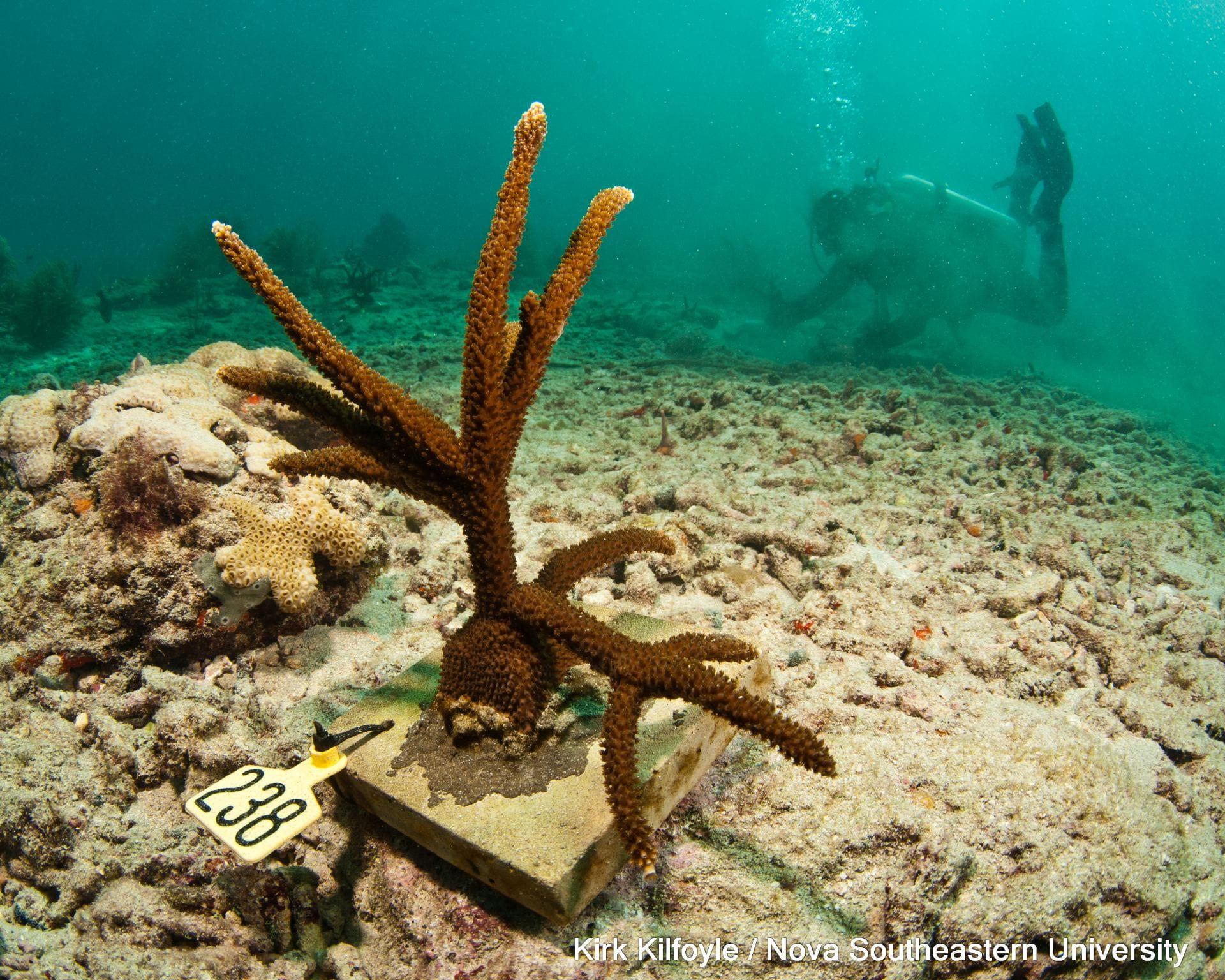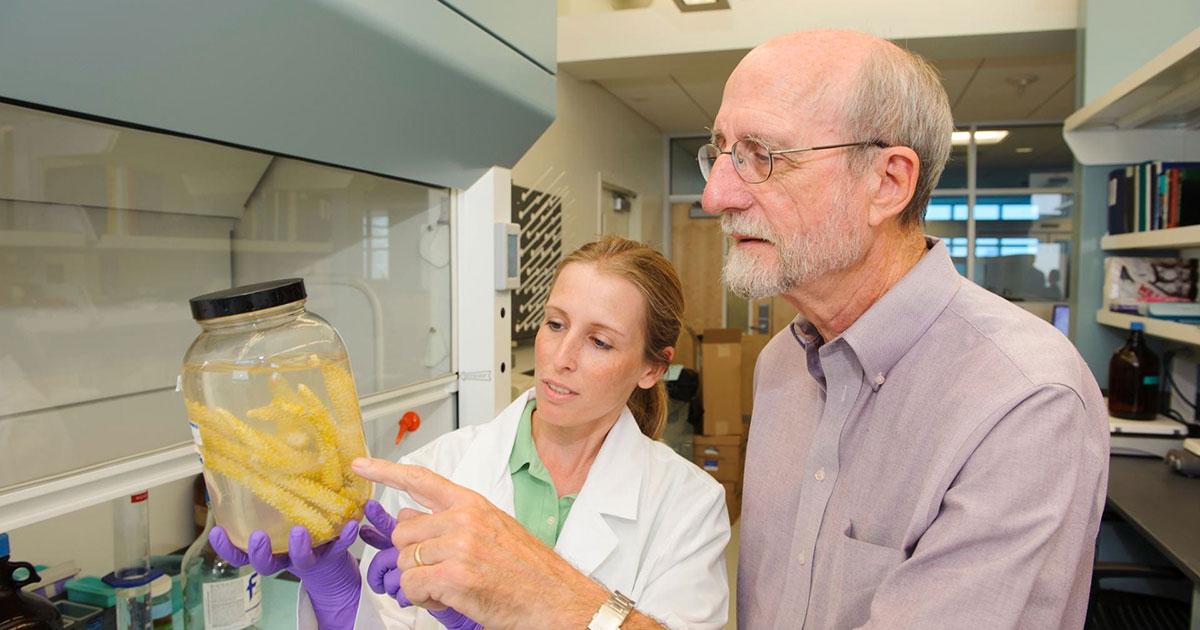Coral reefs across the globe are under siege. Due to a number of “stressors,” coral reefs have been dying off in record numbers. For many years, marine biologists and researchers around the world, including right here at Nova Southeastern University’s (NSU) Halmos College of Natural Sciences and Oceanography have undertaken herculean efforts to save these vital members of the marine ecosystem. Unfortunately, it hasn’t been enough, so a radical idea was needed.
“Researchers across the planet are working to determine what is causing corals to die off in such large numbers, but it takes time,” said Abby Renegar, Ph.D., a research scientist at NSU’s Halmos College. “We have learned a great deal, but there is so much more we need to learn in order to best help corals survive the attacks they face.”
We’ve all heard the phrase “think globally, act locally.” Well, nowhere is this more obvious than right here with Florida’s coral reefs. Our reefs have been dealing with a multi-year, disease-related mortality event that has caused massive coral “die-offs.” Renegar said that in Florida, more than 20 species, including those identified as primary reef-building species, have been negatively affected by this disease outbreak. Given just how pivotal a role coral reefs play in the economic engine that helps Florida run (i.e. tourism) it’s clear that the time had come for a drastic step to help save our corals.
 Staghorn Coral in NSU’s Offshore Nursery
Staghorn Coral in NSU’s Offshore Nursery
Hence the creation of this Noah’s Ark project.
The Department of Environmental Protection’s Florida Coastal Office, along with the Florida Keys National Marine Sanctuary and the National Oceanographic and Atmospheric Administration (NOAA) Coral Reef Conservation Program created a comprehensive coral reef rescue plan. The idea is to help slow the continued spread of disease and saving “priority corals,” which include collecting numerous healthy corals that haven’t yet been impacted and house them in on-shore coral nurseries.
That’s where NSU comes in, but unlike the original Noah, who had only one ark, NSU is one of seven “arks” that will be hosting the rescued corals. In the short-term, these collections will prevent the total loss of these corals by protecting them from possible infection. In the long term, these collections will support the genetic preservation of these corals as a source stock for propagation for future restoration and reintroduction into the wild.
The first round of corals is tentatively scheduled to arrive at NSU’s Ocean Campus at 1 p.m. Thursday, May 23. The Ocean Campus is located at 8000 N. Ocean Dr. (inside the Von D. Mizell and Eula Johnson State Park.)
NSU has been growing corals in its off-shore and on-shore nurseries for many years, so this is a natural fit for the university to be part of this ambitious project. Renegar, who will be leading the preservation efforts at NSU, said the university will be home to approximately 700 rescued corals.
“We have a good deal of experience working with corals in such an environment,” she said. “We are going to take good care of our new residents.”
Story by Nova Southeastern University (NSU)



